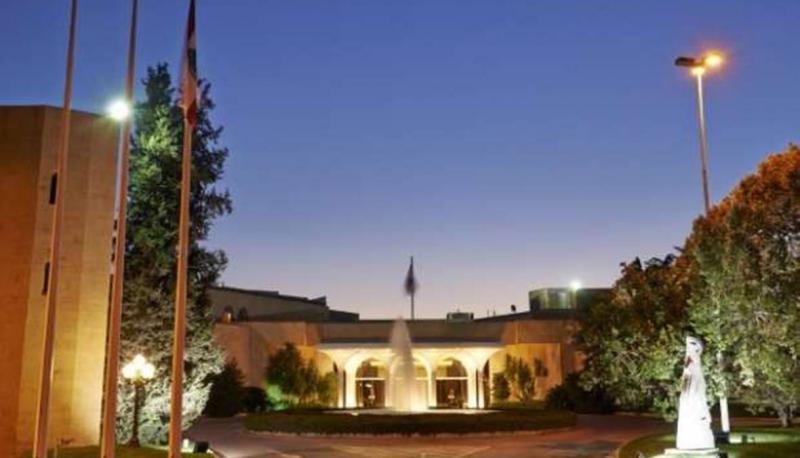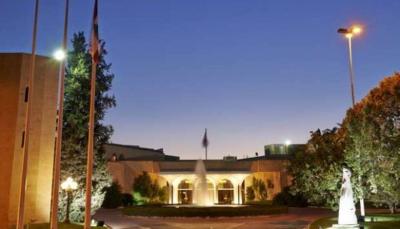Pope Francis crowned, yesterday, the international concern for Lebanon, which is preparing for a transition from the year 2022 that deepened its comprehensive crisis to 2023, which seems to be a year of either a horrific collapse that destroys "the structure for everyone" or a slowdown in the great collapse and a curbing... of the deadly path. In his Christmas Mass, Pope Francis made a special appeal for Lebanon, breaking the quiet of the holiday, during which the country appeared to be in a "break between storms," stating, “Help, Lord, Lebanon to recover with the support of the international community and the strength of brotherhood and solidarity.”
This call from the head of the Catholic Church came while behind the scenes, Maronite Patriarch Cardinal Mar Bshara Boutros al-Rahi was expressing his views on the political reality embodied in the deadlock over electing a president and warning against “a plan to destroy Lebanon,” rooted in the persistent presidential vacancy accompanied by a constitutional void, while maintaining his call for an international conference under the auspices of the United Nations and friendly nations, "because we have lost hope in the politicians."
Al-Rahi continued to raise his voice yesterday, indicating in his Christmas Mass sermon that "pride prevents politicians from meeting and discussing to get out of the presidential election crisis, while the moans of the hungry and oppressed people do not reach their hearts and consciences," asking, "Where are they from the face of mercy revealed to us in the Nativity?" He added, "They should stop obstructing the election of a president so that normal life returns to constitutional institutions and the country exits its lethal economic and financial crises, and the people from their poverty, deprivation, and oppression."
The Christmas Mass witnessed the presence of former President Michel Aoun and head of the "Free Patriotic Movement" Gebran Bassil, who received holiday greetings for some time with the patriarch, only stating before leaving Bkerke, that the days leading up to the end of 2022 will carry continuous attempts to formulate a complete position by "the end of the first week of the new year."
Political circles appeared skeptical about the possibility of quickly finding solutions to the presidential crisis, given the ongoing differences within the ruling camp between Bassil and "Hezbollah," which supports Suleiman Franjieh as the number one candidate, even if not the only one, while simultaneously hinting at a non-opposition to the arrival of Army Commander General Joseph Aoun; both names that the head of the "Free Patriotic Movement" will not support, without revealing a "third choice" that he might accept, at least because that would mean conceding that his chances of entering Baabda Palace have "vanished forever," especially since abandoning his candidacy, even if "impossible," would only be in exchange for him becoming... "the maker of the president."
While awaiting the maturation of a settlement in the internal scene, it is essential to intersect with the opposition, most of which is still endorsing Michel Moawad, as this entitlement has an external complement that must be considered if the presidential elections are to be made an entry point for rescue. It has become clear that both the Arab and international communities want a president who can assure them that Lebanon has begun to regain its balance concerning its regional positioning and is capable of "removing the causes" of the Arab and specifically Gulf retreat from the small nation, particularly linked to "Hezbollah's" status and roles in the region and the state’s loss of decision-making power, which has been framed by the twelve-point paper known as the Kuwaiti initiative (Arab Gulf international) "to build bridges of trust," focusing on the commitment to the Taif Agreement and "the policy of disassociation in word and deed," and executing Security Council resolutions, including 1559, related to disarming militias in Lebanon and halting Hezbollah's interference in Gulf and Arab affairs.
It was notable yesterday that "Hezbollah" continued to deflect the blame for the obstruction onto its opponents, who accuse it of leveraging the presidential entitlement for its regional calculations, as member of the Central Council Sheikh Nabil Qaouq stated that "the challenge and confrontation team tried and failed over ten sessions dedicated to electing a president of the republic, so how long will stubbornness and obstinacy continue?"
He viewed that "America has its accounts that lie in prolonging the vacancy, as it bets on increasing crises to impose its political conditions," emphasizing that "national interest requires us to hasten to dialogue and internal consensus, and Hezbollah has since the beginning extended its hand for dialogue and meeting and has not proposed any candidate for confrontation; rather, it is the other party that proposed a candidate for defiance and confrontation," warning that "internal incitement is pouring oil on the fire of discord that spares no one and shows no mercy."




